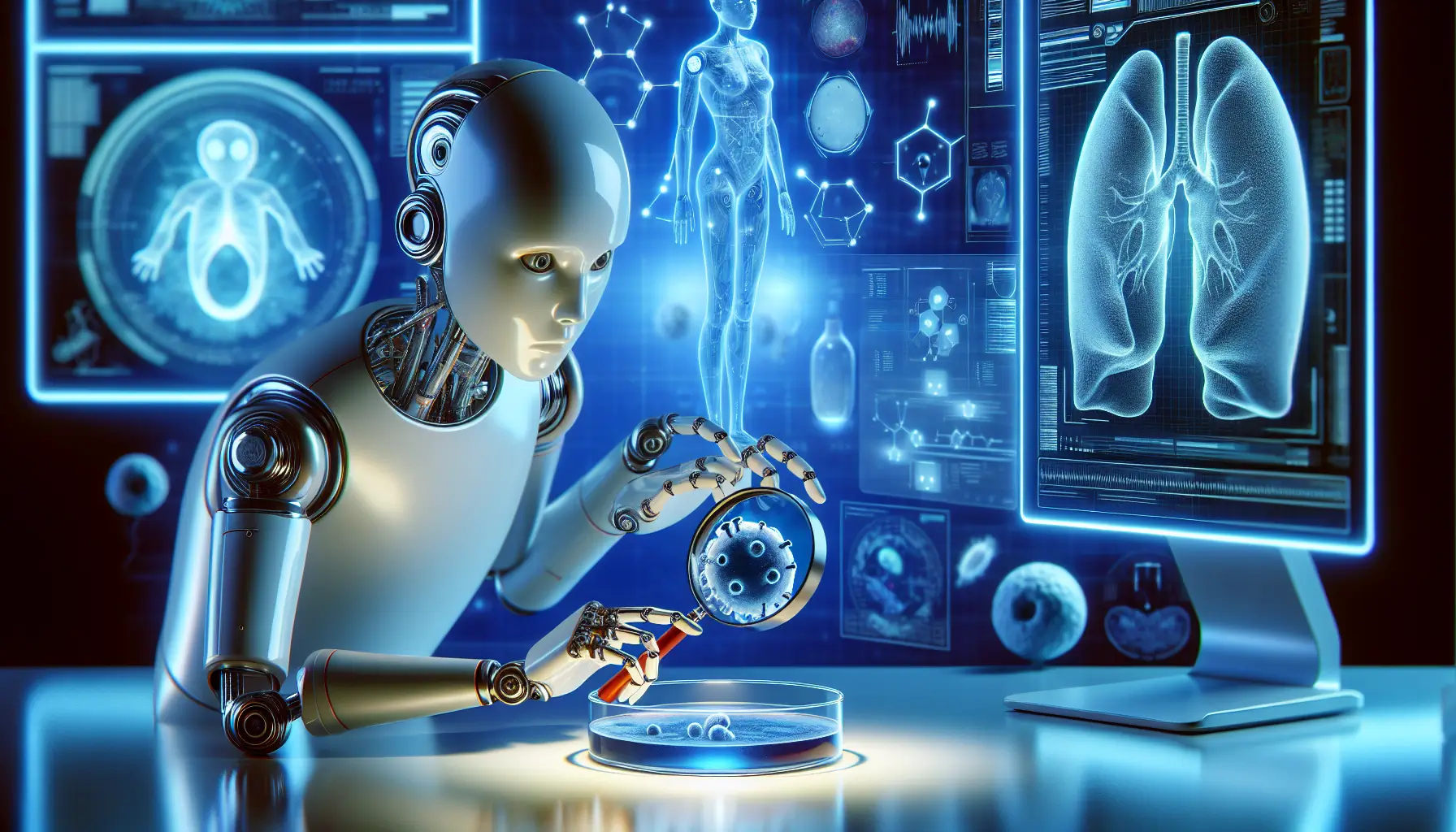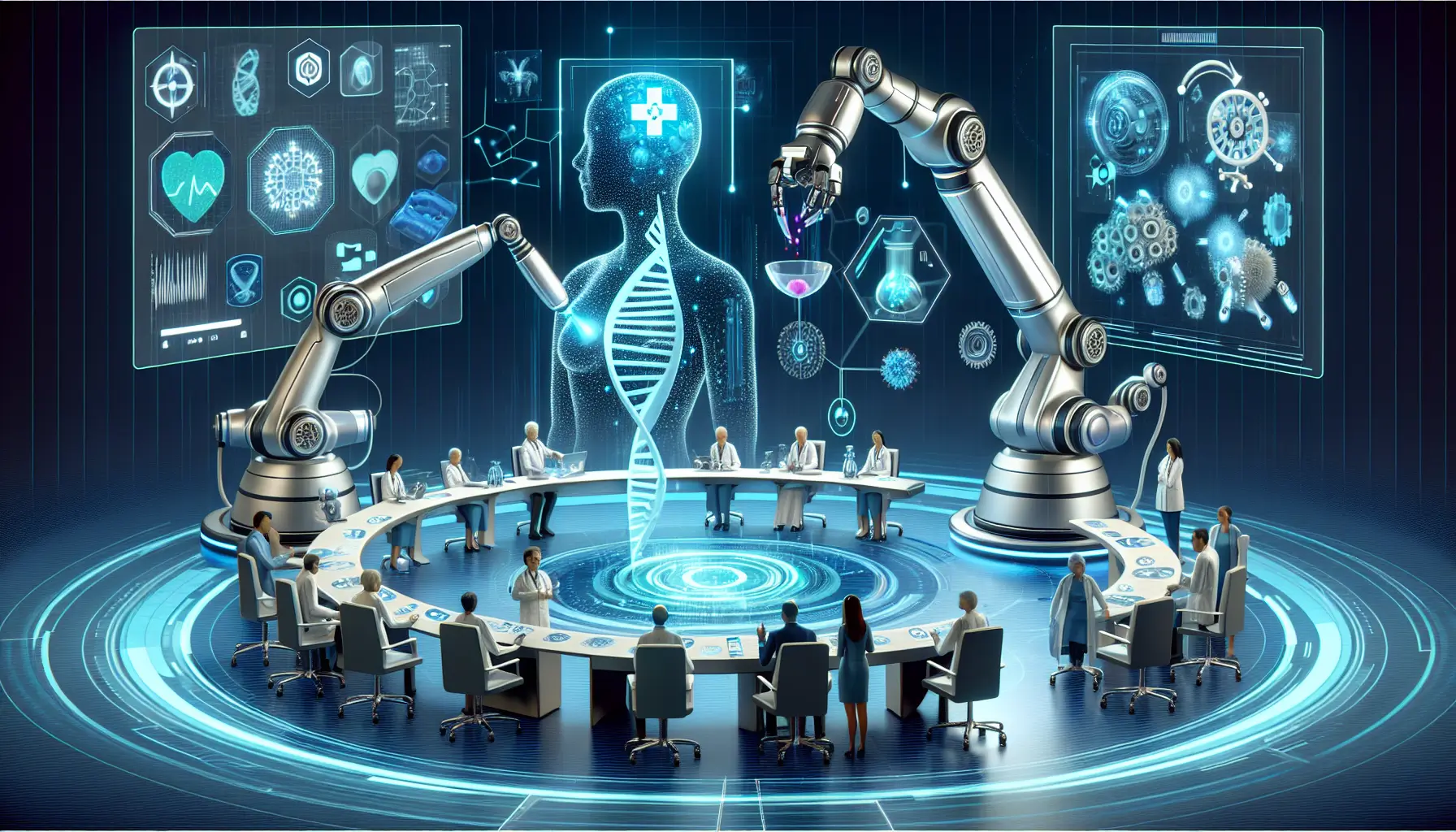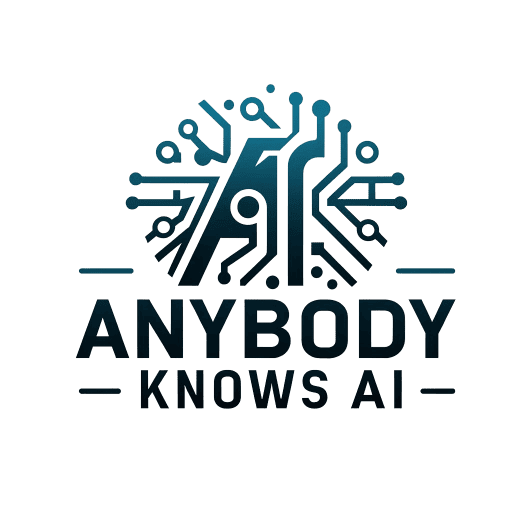What is the primary goal of AI-driven personalized medicine? Simply put, it aims to improve patient outcomes by providing more precise and tailored treatments. By analyzing vast amounts of genomic data, AI can help healthcare providers make better decisions for each patient.
Key Takeaways
- AI-driven personalized medicine aims to enhance patient outcomes through individualized treatment plans based on precise data analysis, including genetics and real-time health statistics.
- Key benefits of AI in personalized medicine include faster disease prediction and diagnosis, proactive healthcare delivery, improved treatment effectiveness, and streamlined clinical workflows.
- Predictive analytics is crucial in enhancing treatment effectiveness and proactive healthcare delivery.
- Challenges of implementing AI-driven personalized medicine include ensuring data privacy and security, addressing algorithmic bias, and promoting the inclusion of diverse populations to achieve equitable healthcare outcomes.
Understanding AI-Driven Personalized Medicine

The concept of personalized medicine is not new; its roots can be traced back to the completion of the Human Genome Project in 2003, a significant milestone that opened doors for a more individualized approach to healthcare.
However, the advent of artificial intelligence has truly catapulted the field into a new era. Leveraging AI techniques such as machine learning, deep learning, and natural language processing, AI-driven personalized medicine can now analyze and synthesize vast amounts of medical data, including genetic information and real-time population health statistics. AI can also identify genetic variants to inform personalized treatment plans.
The journey of artificial intelligence in healthcare began in earnest in the early 21st century. Still, the spark was truly lit with the marriage of AI and high-throughput sequencing technologies in the mid-2000s.
The result was precision medicine and artificial intelligence in healthcare – a symbiosis of cutting-edge technology and medical science, enabling personalized treatment plans and revolutionizing the approach to patient care.
The power of AI lies in its ability to process and analyze data beyond human capacity, identifying patterns and making predictions that revolutionize diagnostics and treatment. Techniques such as Low-Rank Adaptation (LoRA) and quantization have played pivotal roles, simplifying complex machine learning models to make advanced therapies more accessible and interpretable.
This transformative technology has also been instrumental in identifying patients who may benefit most from targeted interventions, thus improving patient outcomes. Furthermore, AI-driven personalized medicine empowers patients by offering tailored health insights and recommendations, placing them at the center of their healthcare journey.
AI’s promise extends to addressing healthcare disparities, making high-quality, individualized care more available across different populations. With the AI healthcare market projected to reach a staggering $187 billion by 2030, AI’s anticipated value and impact in healthcare are clear as day.
As AI continues to integrate into the healthcare systems, it’s reshaping the landscape of patient care, from drug discovery to personalized treatment, and setting a new standard for the medical data-driven clinical decision support systems and-making process.
The Primary Goal: Enhancing Patient Outcomes
At the heart of AI-driven personalized medicine lies a simple yet profound aim: to enhance patient outcomes. Integrating artificial intelligence in healthcare with clinical practice creates a paradigm where healthcare providers can deliver better health outcomes through personalized treatment plans informed by precise data analysis.
AI’s ability to predict and diagnose diseases faster than most healthcare and medical professionals can is a game-changer. For example, in cardiovascular care, AI has revolutionized how conditions are diagnosed, managed, and treated, leading to better patient outcomes.
Predictive models powered by AI can analyze complex, non-linear relationships between patient data points, overcoming the limitations of traditional regression models.
One of the most impactful applications of AI is in cancer treatment, where it has been used to:
- Predict therapy responses with remarkable accuracy
- Analyze gene expression data to predict a patient’s response to chemotherapy with over 80% accuracy
- Enable healthcare providers to tailor treatments to individual patients
- Significantly improve patient outcomes.
Moreover, AI systems can:
- sift through a patient’s medical history and current health data to predict potential health risks
- allow for proactive, preventative healthcare delivery
- enhance patient care
- Contribute to a more efficient healthcare system by potentially reducing the need for costly interventions.
The ripple effect of these improvements extends beyond individual care. By integrating AI techniques into everyday clinical practice, healthcare organizations can streamline clinical workflows, monitor patient progress more effectively, and ultimately improve healthcare delivery.
Leveraging Patient Data for Precision Medicine
Diving deeper into the utilization of health data, AI’s role in leveraging patient data for precision medicine cannot be overstated. By integrating and analyzing vast arrays of data points, AI algorithms can analyze patient data to:
- Create personalized treatment plans
- Tailor treatment plans to the individual needs and characteristics of each patient
- Utilize electronic health records, genomic data, and genetic data to inform treatment decisions
This use of AI in precision medicine allows for more targeted and effective healthcare interventions.
Integrating genetic information, lifestyle factors, and medical records through machine learning enables healthcare providers to develop precision medicine artificial intelligence strategies. Such strategies enhance patient outcomes and push the boundaries of what’s possible in terms of accurate diagnoses and therapeutic interventions.
Furthermore, AI’s capability includes:
- Combining data from disparate sources such as genomics, proteomics, and metabolomics studies
- Translating into a holistic understanding of natural systems and disease mechanisms
- Facilitating the prediction of effective treatment procedures
- Identifying at-risk individuals
- Enhancing preventive care and better health outcomes.
AI’s data mining prowess is also evident in genetic research. Machine learning algorithms can predict a spectrum of phenotypes and identify genetic variants associated with distinct traits or pathologies, which is instrumental in drug development.
AI in Medical Diagnosis

Transitioning from the broad-reaching impact of AI on patient data to the specifics of medical diagnosis, AI’s role is equally transformative. Leveraging deep learning algorithms and natural language processing, AI is streamlining the disease detection and diagnosis process, offering more accurate diagnoses at unprecedented speeds.
With its neural network capabilities, deep learning is particularly adept at parsing medical images and time-series data.
Convolutional neural networks (CNNs) and recurrent neural networks (RNNs), for instance, have been instrumental in identifying patterns and anomalies within clinical data that might otherwise go unnoticed by human eyes.
Natural language processing tools like Stanford CoreNLP and Apache OpenNLP are enhancing the analysis of patient feedback and medical records. By extracting relevant features from these textual data sources, NLP provides clinicians with additional insights into a patient’s medical history, enabling more informed decision-making.
One striking example of AI’s prowess in medical diagnosis is its success in identifying genetic mutations in brain tumors through the analysis of brain scans, which plays a crucial role in determining appropriate treatment plans.
Furthermore, in a study conducted in South Korea, AI demonstrated a higher sensitivity in diagnosing breast cancer with mass compared to radiologists, marking a significant leap forward in cancer detection.
Personalized Treatment Plans
The emergence of personalized cancer treatment plans directly results from AI’s ability to synthesize data and provide tailored healthcare solutions. Traditional medicine often follows a “one-size-fits-all” approach. Still, with the integration of AI, treatments can now be customized to individual patient characteristics, such as genetics and lifestyle factors.
AI’s analysis and integration of diverse data sources are revolutionizing how healthcare providers approach treatment. Electronic health records, for example, when combined with environmental exposures and genetic information, provide a comprehensive snapshot of a patient’s health, leading to precise treatment recommendations.
Pharmacogenomics testing is one area where AI profoundly affects clinical trials. AI can predict individual medication responses by analyzing genetic variations and optimizing drug selection and dosages for better patient outcomes.
Another AI tool, predictive analytics, identifies risk factors and estimates patient responses to various treatments. This allows for early intervention and customized care, enhancing the overall effectiveness of medical care.
By factoring in individual genetic makeup, physiological characteristics, and lifestyle choices, AI models are revolutionizing how patients receive care, ensuring that treatments are effective and personalized.
AI in Drug Discovery and Development

The drug development process has been greatly accelerated thanks to AI, which reshapes the landscape of drug discovery by predicting biological activities, optimizing extraction processes, and identifying potential toxicity. These advancements reduce the time and cost of clinical trials and ensure patients receive safer and more effective medications.
AI’s integration into personalized medicine has facilitated the discovery of new biomarkers, genetic variants, and therapeutic targets, enabling the development of drugs tailored to individual patients’ unique needs. By analyzing spectroscopic data, AI expedites the isolation of bioactive molecules from natural products, streamlining the drug discovery process.
Machine learning models, particularly those utilizing deep neural networks, have proven effective in:
- predicting and ranking the biological activities of natural products
- identifying potential therapeutic targets
- understanding the therapeutic potential of these compounds
- incorporating natural products into drug development
This approach allows researchers to understand these compounds’ therapeutic potential better and incorporate them into drug development.
AI’s predictive models also play a crucial role in identifying bioactive secondary metabolites, such as alkaloids and flavonoids, which possess diverse therapeutic properties. By optimizing the extraction processes of these compounds, AI ensures maximum yield and efficiency.
Additionally, AI tools can predict synergistic interactions between different compounds, guiding the formulation of combination therapies that can be more effective than single-agent treatments.
Continuous Monitoring and Adaptive Treatment
The ability to continually monitor and adapt treatment in real-time is a significant advancement enabled by AI technology. In chronic disease management, this leads to more personalized adjustments in medication and lifestyle, improving patient care and outcomes.
Wearable devices powered by AI provide healthcare providers with continuous feedback on a patient’s health status, allowing for real-time interventions. This is particularly crucial for managing chronic conditions and tracking post-operative recovery.
Deep learning and natural language processing enable continuous remote patient health monitoring, providing insights that can lead to early intervention and personalized treatment plans. For example, in cardiovascular care, AI models analyze real-time data from wearable devices and regular clinical assessments to adaptively manage patient health.
Platforms like CURATE.AI exemplify how AI can dynamically optimize treatment dosages based on individual patient data, demonstrating the potential for AI to revolutionize personalized medicine.
AI-Powered Virtual Health Assistants

Virtual health assistants revolutionize the healthcare experience by offering continual support and monitoring. They also improve patient engagement and ensure adherence to treatment plans through their AI-powered technology.
These sophisticated AI tools, including chatbots and virtual assistants, are designed to offer personalized support through real-time conversations and tailored advice. They can assist with a range of tasks, including:
- Triaging patients based on entered symptoms
- Scheduling doctor appointments
- Providing medication reminders
- Offering general health information
- Monitoring vital signs
- Assisting with mental health support
These virtual health assistants are transforming how healthcare is delivered and becoming an integral part of patient care.
Moreover, virtual health assistants can provide motivational encouragement, adapt to individual health goals, and collect and analyze user data to identify patterns and predict lapses in health behaviors. However, these systems are not without challenges.
Understanding human language and emotions effectively is a hurdle that must be overcome to ensure virtual health assistants can effectively engage with users and provide the necessary support.
Overcoming Challenges in AI-Driven Personalized Medicine
While AI-driven personalized medicine offers numerous benefits, some challenges must be addressed to realize its full potential. Some of these challenges include:
- Data privacy and security: Given the sensitive nature of personal health information, it is crucial to ensure that data is protected and secure.
- Algorithmic bias: If not properly managed, algorithmic bias can lead to healthcare disparities. It is important to address this issue and ensure that AI systems are fair and unbiased.
- Inclusion of diverse populations: Efforts to include diverse populations in AI training data are essential to ensure equitable healthcare outcomes.
By addressing these challenges, we can maximize the benefits of AI-driven personalized medicine while ensuring that it is safe, fair, and inclusive.
Legal and regulatory compliance is crucial, particularly regarding the transmission and storage of electronic health data. Healthcare workers and institutions must also:
- Establish comprehensive governance frameworks tailored to AI usage and data access
- Ensure transparency in AI decision-making to build trust among patients and healthcare providers
- Provide detailed documentation and visualizations of the AI decision-making process to achieve transparency.
Ethical Considerations in AI-Driven Healthcare
Ethical considerations in AI-driven healthcare include:
- Data privacy and security
- Ensuring patient data is handled with care
- Addressing algorithmic bias to prevent discrimination
- Training algorithms with balanced data
- Designing algorithms to minimize inherent biases
These considerations are critical for medical professionals in maintaining trust and adhering to healthcare regulations.
Promoting digital literacy and ensuring all individuals have access to AI-driven healthcare solutions is necessary to prevent widening the healthcare gap.
Clear guidelines and accountability mechanisms are required to navigate the ethical landscape of AI in the healthcare industry, ensuring that patient safety is always prioritized and ethical practices are maintained.
Healthcare professionals should also be equipped with the necessary knowledge and training to understand and navigate the moral implications of AI in their practice.
Future Directions for AI in Personalized Medicine

As we gaze into the horizon of healthcare, the future directions for AI in personalized medicine are brimming with potential. Advancements in AI technologies and their integration with other emerging technologies, such as blockchain and quantum computing, are set to redefine personalized health care again.
The evolving capabilities of AI systems to comprehend, reason, and learn will further empower healthcare professionals, enabling them to provide even more precise and effective care to patients. The synergy between AI and precision medicine is poised to address some of the most complex challenges in delivering personalized care.
Blockchain technology promises to enhance data privacy and security by creating secure and transparent systems for sharing patient data, ensuring accuracy and compliance with healthcare regulations.
Meanwhile, quantum computing offers unprecedented computational power that could enable the development of AI models that are more complex, accurate, and capable of processing multi-omic data essential for individualized care.
Healthcare providers, technology developers, and regulatory bodies must collaborate to ensure AI’s responsible and effective implementation in personalized medicine. This collaboration is essential for the successful integration of AI technologies in healthcare.
Clear guidelines and regulations must be established to address ethical concerns and ensure the accessibility and benefit of personalized treatments for all patients.
Ensuring transparency, fairness, and security in implementing AI in personalized medicine will be crucial for addressing ethical considerations.
This will help in harnessing the full potential of AI in this field. It’s a future where personalized medicine is more precise and equitable, ensuring that all patients, regardless of background, can benefit from the advancements in healthcare technology.
Summary
In conclusion, the fusion of artificial intelligence and personalized medicine is forging a new frontier in healthcare. By leveraging predictive analytics to optimize patient outcomes, enhancing precision medicine, and accelerating drug discovery, AI is reshaping the landscape of patient care. The journey we’ve embarked upon reveals an increasingly adaptive, predictive, and personalized healthcare system.
As we move forward, integrating AI in healthcare promises better health outcomes and a revolution in the patient experience. It’s a path defined by continuous innovation, ethical responsibility, and a commitment to equitable access to healthcare for all.
The future is bright, and the potential for AI-driven personalized medicine to improve lives is immense.
Frequently Asked Questions
How does AI enhance the accuracy of medical diagnoses?
AI enhances the accuracy of medical diagnoses by using deep learning algorithms and natural language processing to analyze complex relationships within data, leading to more accurate and quicker diagnoses.
What role does AI play in the creation of personalized treatment plans?
AI is crucial in creating personalized treatment plans by analyzing genetic information, lifestyle factors, and environmental data to optimize drug selection and therapeutic strategies, ultimately leading to better patient outcomes.
Can AI-driven personalized medicine help in preventing diseases?
Yes, AI-driven personalized medicine can help prevent diseases by analyzing genetic predispositions, lifestyle choices, and environmental factors, enabling the prediction of disease risk and the implementation of preventive measures.
What are the ethical considerations in AI-driven healthcare?
In AI-driven healthcare, ethical considerations include data privacy, algorithmic bias, digital literacy promotion, and accountability for patient safety and ethical practice. Addressing these considerations is crucial to ensure AI’s responsible and ethical use in the healthcare sector.
What advancements in AI can we expect to see in the future of personalized medicine?
We can expect AI to integrate with technologies like blockchain and quantum computing in personalized medicine, enhancing data security and computational power. There will also be AI in healthcare, improved collaboration between healthcare providers and regulatory bodies, and a focus on ethical considerations.







